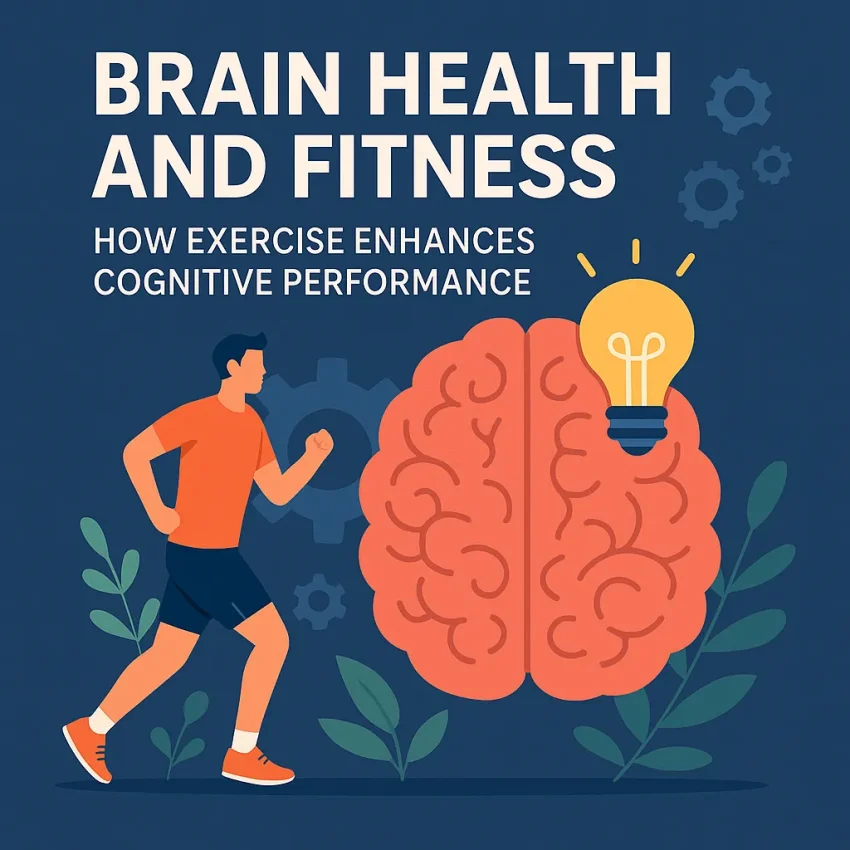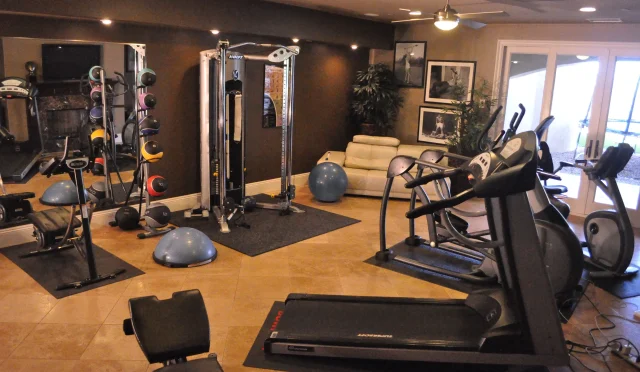Brain Health and Fitness: How Exercise Enhances Cognitive Performance
Brain health and fitness are increasingly recognized as vital components of overall well-being.
While most people associate exercise with physical strength and weight loss, its profound impact on cognitive performance is equally important. Research shows that regular physical activity is one of the most effective ways to keep the brain sharp, agile, and resilient against aging.
Exercise and brain health are interconnected at a biological level. Physical activity boosts blood flow to the brain, increasing oxygen and nutrient delivery to neural tissues. This enhanced circulation not only nourishes existing brain cells but also stimulates the growth of new ones, a process known as neurogenesis. Areas like the hippocampus, which is crucial for memory and learning, show measurable growth in people who maintain an active lifestyle.
One of the key benefits of fitness for brain health is its ability to improve memory. Aerobic exercises like running, cycling, and swimming increase the size of the hippocampus, leading to better memory retention and recall. Studies have demonstrated that individuals who engage in regular cardio workouts outperform sedentary individuals in memory-based tasks.
Another major cognitive benefit of brain-focused fitness is enhanced executive function. Executive functions include skills such as problem-solving, decision-making, multitasking, and impulse control. Physical exercise helps fine-tune these abilities by strengthening the prefrontal cortex, the brain region responsible for higher-order thinking and emotional regulation.
Beyond structural changes, exercise and brain function are linked through chemical changes. Physical activity promotes the release of brain-derived neurotrophic factor (BDNF), a protein that supports neuron survival, encourages the growth of new neurons, and enhances synaptic plasticity—the brain’s ability to adapt and learn. Higher levels of BDNF are consistently associated with better cognitive performance and mental health.
Fitness routines that blend both aerobic and resistance training offer the most comprehensive benefits for brain health. Aerobic activities improve cardiovascular fitness and brain oxygenation, while resistance training boosts neurochemical production and strengthens motor neuron connections. A combination of both types of exercises leads to faster cognitive processing, better concentration, and improved emotional resilience.
The impact of exercise on mental health further reinforces the link between physical fitness and cognitive performance. Regular workouts are known to reduce symptoms of anxiety, depression, and stress. Exercise stimulates the production of endorphins, serotonin, and dopamine—neurotransmitters that elevate mood and promote a sense of well-being. Lower levels of psychological distress contribute to clearer thinking, sharper focus, and more stable emotional responses.
Different types of exercises offer unique advantages for brain fitness:
Aerobic exercise, such as jogging, brisk walking, and cycling, primarily enhances memory and executive function. These activities are associated with higher hippocampal volume and increased brain connectivity.
Resistance training, including weight lifting and bodyweight exercises, supports attention span, conflict resolution abilities, and emotional regulation. Studies indicate that strength training leads to significant increases in executive function scores.
Mind-body exercises like yoga, tai chi, and Pilates focus on breathing, balance, and mindfulness. These practices enhance brain areas related to body awareness, stress management, and emotional control, making them ideal for holistic brain health development.
Even short bouts of activity can have immediate cognitive benefits. A 20-minute brisk walk has been shown to boost mood, enhance attention, and improve memory recall immediately after exercise. Consistency is key; incorporating moderate-intensity workouts several times per week yields lasting benefits for cognitive fitness.
Modern technology is also influencing brain health and fitness trends. Wearable fitness trackers monitor not just steps and heart rate, but also sleep patterns and stress levels, providing a more comprehensive view of an individual’s overall health. Digital apps offering guided workouts, brain-training games, and mindfulness sessions make it easier than ever to integrate cognitive fitness into daily routines.
Emerging research continues to uncover fascinating connections between exercise and cognitive longevity. People who maintain regular fitness habits are less likely to develop neurodegenerative conditions such as Alzheimer’s disease and Parkinson’s. Physical activity reduces inflammation, combats oxidative stress, and enhances the brain’s repair mechanisms, providing powerful protection against age-related cognitive decline.
Workplace wellness programs are increasingly recognizing the importance of brain fitness. Companies are encouraging employees to engage in physical activities during the workday through standing desks, movement breaks, and corporate fitness challenges. These initiatives not only improve individual health outcomes but also enhance productivity, creativity, and collaboration within teams.
For those seeking to maximize their cognitive potential, designing a personalized fitness plan is crucial. An ideal program includes:
-
150 minutes per week of moderate-intensity aerobic exercise
-
Two sessions per week of strength training
-
Regular flexibility and balance exercises
-
Mindfulness practices like meditation or breathwork
By creating a balanced routine that targets all aspects of health, individuals can achieve optimal brain performance and enjoy greater mental clarity, emotional stability, and lifelong cognitive vitality.
Consistency remains the golden rule in optimizing brain health and fitness. Just as muscles require regular training to maintain strength, the brain thrives on continuous stimulation and nourishment through physical activity. Each workout, whether a jog around the park or a set of squats in the living room, strengthens the body and sharpens the mind simultaneously.
Investing in brain health through fitness is one of the most strategic moves anyone can make for long-term success, happiness, and resilience. As scientific understanding deepens, the case for integrating structured exercise into daily life becomes undeniable.
#️⃣ #brainhealth #fitness #cognitiveperformance #exerciseandbrain #mentalhealth #neurogenesis #brainfitness #memoryboost #executivefunction #workoutforbrain








